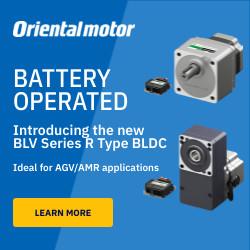Co-Founder of Raspberry Pi, Liz Upton, joins Robotics Software Company, BOW, as Chair of the Board
• Liz Upton co-founded LSE-listed Raspberry Pi in 2008 and joins BOW’s board as Chair • BOW’s universal robotics software platform removes the need for specialist robotics programming skills, accelerating the adoption of robotics across industries
[Sheffield, Thursday, 28 November, 2024] - BOW, the universal robotics software company, has today announced the appointment of Liz Upton, Co-Founder of Raspberry Pi (LSE:RPI), as Chair of its board.
The robotics market is projected to reach $260 billion by 2030, yet realising the full potential of robotics is out of reach for many companies and industries because of the high cost and complexity of programming robots. BOW's robot-agnostic software development kit (SDK) and platform solves this bottleneck, making it possible for the first time to program any robot using any operating system in any programming language.
BOW - which stands for "Bettering our Worlds" - makes it possible for any software developer to create and deploy robotics applications and manage robots. By removing the need for highly-specialised robotics programmers, BOW's universal robotics platform allows companies to leverage the skills of generalist software developers and opens up valuable new use cases in sectors that have previously been underserved by robotics.
Liz Upton, who co-founded Raspberry Pi in 2008, played a crucial role as Chief Marketing Officer in the company's growth, achieving sales of over 60 million units worldwide and a successful IPO on the London Stock Exchange earlier this year.
Liz Upton's appointment follows news of BOW's recent partnership with XPLOR, the world's first Live Events R&D and Innovation centre. The partnership is pioneering the adoption of robotics in the film and creative industries, focusing on developing new applications, improving efficiency and lowering production costs.
Liz Upton, Chair at BOW said: "The BOW team's passion for innovation and their commitment to developing the world's first universal robotics platform is inspiring. At Raspberry Pi, we have always been driven by the mission of democratising computing for all. Robotics similarly has the potential to help solve global challenges but only if we can remove the barriers to its adoption. BOW solves the current complexity of developing robotics applications and makes programming any robot in any programming language possible for the first time. I'm excited to join this pioneering and fast-growing company as Chair and to help BOW make the tremendous benefits of robotics universally accessible."
Nick Thompson, CEO of BOW, said: "We are delighted to welcome Liz Upton to BOW as our new Chair. I'd like to thank our former Chair, Pete Hopton, for his tremendous contribution to BOW since we founded the company in 2020. Liz brings a wealth of experience in scaling a transformational technology business globally. In addition, her deep commitment to innovation and education aligns perfectly with BOW's mission to enable millions of software developers to develop robotics applications for the betterment of our world."
For more information about BOW and its leadership team, visit https://usebow.com/
-ENDS-
About BOW:
Founded in 2020, BOW is the world's leading universal robotics software company, working with robotic hardware manufacturers and OEMs, systems integrators, roboticists, and software developers. BOW enables software developers to create portable robotics applications using their preferred programming language and operating system. The company is headquartered in Sheffield, UK.
Featured Product

Oriental Motor USA - Ideal for AGV/AMR Applications
The BLV Series R Type brushless DC motor (BLDC motor) speed control system offers the design of motor and driver significantly reduced in size and weight, yet high-power, and contributes to the battery driven automation. The BLV Series R Type is compatible with the two interfaces of Modbus (RTU) and CANopen communication.
